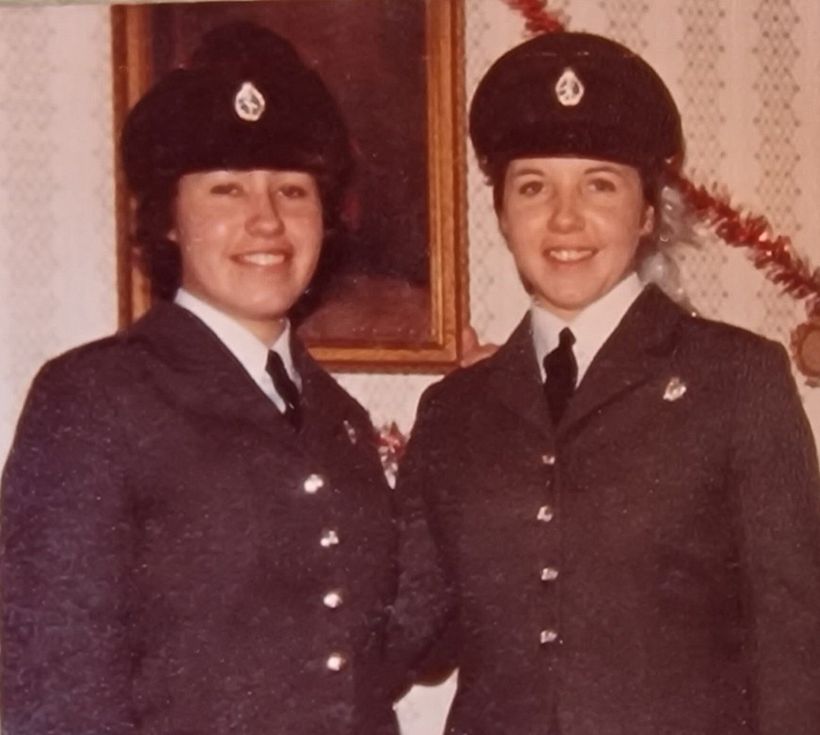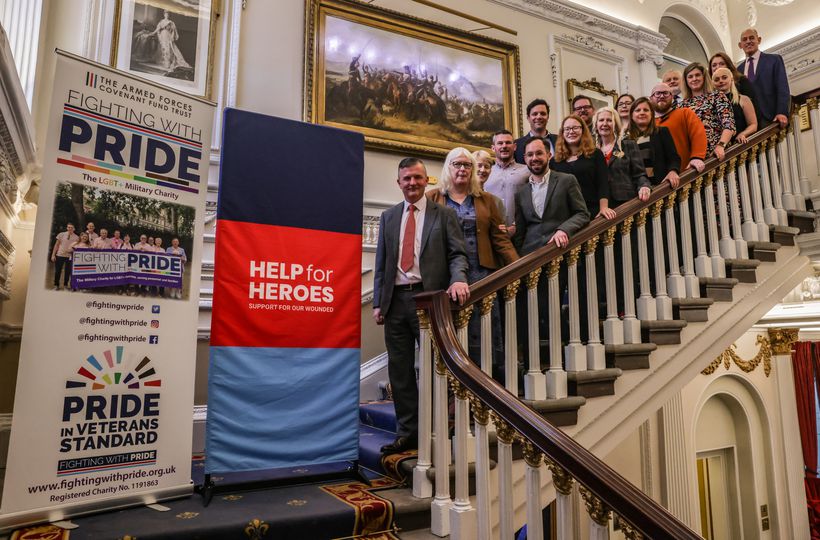Updated on
Help for Heroes has warmly welcomed the publication of the Independent Review into the impact of the pre-2000 ban on homosexuality in the Armed Forces on LGBT+ veterans. Following its publication, the Prime Minister Rishi Sunak issued an apology to the LGBT+ veteran community in the House of Commons.
The review, chaired by Lord Etherton, has recommended that the Government make an official apology and financial compensation to individuals who were investigated, wrongfully discharged, imprisoned, or subjected to harmful ‘conversion therapy’ practices whilst in the Armed Forces due to their sexuality or perceived sexuality.
Comments from Prime Minister Rishi Sunak
Speaking today during Prime Minister's Question Time, Mr Sunak said, "The ban on LGBT people serving in our military until the year 2000 was an appalling failure of the British state – decades behind the law of this land.
As today’s report makes clear, in that period many endured the most horrific sexual abuse and violence, homophobic bullying and harassment while bravely serving this country. Today, on behalf of the British state, I apologise, and I hope all those affected will be able to feel part of the proud veteran community that has done so much to keep our country safe."
My military discharge was traumatic and had a big effect on my life. It led to years of low self-esteem, shame and mental health difficulties. I am hoping that the recommendations put forward will provide reparation for those who, like me were so badly traumatised by the ban just because we loved someone of the same sex.”
Former Army servicewoman
The review followed a campaign led by Fighting With Pride (FWP), the UK’s only LGBT+ veterans' charity, to provide justice for the hundreds of veterans who served in the military, but who suffered substantial harm to their health, emotions or financially as a result of the ban.
We supported FWP’s campaign in May by hosting a roundtable event which brought together key stakeholders from across the Armed Forces and LGBT+ sectors as well as from Government.
The Charity also worked with parliamentarians to build support for the review and its recommendations and encouraged veterans with lived experience of the ban to submit evidence to the review.
Comments from Fighting with Pride
Fighting With Pride’s Executive Chair, Craig Jones MBE, and CEO, Caroline Paige, commented: ‘We welcome completion of Lord Etherton’s comprehensive review and hope that Government will take up and swiftly implement all the recommendations. This is an important day for the LGBT+ community and, hopefully, one of the final steps along what has been a very long road to justice for our veterans.
“Whilst this report is very much welcome, we caution that any compensation scheme must be accessible to all veterans affected, whether they were dismissed in disgrace, medically discharged because of their sexuality, or constructively dismissed whilst under investigation.”
Comments from Help for Heroes
Help for Heroes’ CEO, James Needham, added: “We’re pleased to welcome the report which is a step in the right direction for ensuring justice for those who had their lives deeply affected by the treatment of homosexuality in the Armed Forces. The Government must now do what is right by acknowledging and implementing the recommendations.”
Key Recommendations
- ‘The Prime Minister should deliver an apology in the UK Parliament on behalf of the nation to all those LGBT service personnel who served under and suffered from the Ban (whether or not they were dismissed or discharged). The apology delivered in the House of Commons should be repeated in the House of Lords’
- ‘An appropriate financial award should be made to affected veterans notwithstanding the expiry of litigation time limits. The government’s overall exposure should be capped at £50 million'
- ‘Commission and rank should be retrospectively restored to what it was immediately before dismissal or discharge where there was a demotion in consequence of dismissal or discharge pursuant to the Ban’
- ‘The MoD should use the Review and the publication of this Report as an opportunity to invite LGBT veterans who were dismissed or discharged pursuant to the Ban to seek clarification as to their entitlement to a service pension where the veteran has not received any pension but believes they were entitled to one.’
- ‘There should be a public memorial at the National Memorial Arboretum to all LGBT people who have served and continue to serve in the military, possibly including a specific reference to those who suffered the consequences of the Ban on serving homosexuals prior to January 2000. The unveiling or dedication should be at a ceremony to which are invited, among others, all LGBT veterans who served under, and suffered from, the Ban.’
About the pre-2000 ban on homosexuality in the Armed Forces
In the 1950s, laws were passed criminalising homosexuality, specifically, within the Royal Navy, British Army and Royal Air Force. Homosexuality was defined under these laws as ‘conduct of a cruel, indecent or unnatural kind’ and could be punished with up to two years in prison.
Although homosexuality was decriminalised for civilians in 1967, it remained a criminal offence within the Armed Forces. The last imprisonment was Airman David Bonney, as recently as 1994, after which time only administrative discharges were undertaken.
The ban on LGBT+ people serving remained in place until 2000, following a 1999 ruling by the European Court of Human Rights (ECHR) that the ban was discriminatory, compelling the Ministry of Defence to change its policy to allow LGBT+ people to serve openly.
The ban was often strictly enforced. Special Investigation Branch would actively seek out people suspected of being LGBT+, including raiding homes and using private and personal letters as evidence. Evidence suggests several thousands more LGBT+ service personnel left the Armed Forces through summary dismissal, medical routes, bullying, violence, assault, or through constructive dismissals.
Several testimonies collected in the evidence gathering stage of this review revealed that medical staff within the Armed Forces subjected LGBT+ personnel to pseudo-medical ‘conversion therapy’ practices in attempts to ‘cure’ their homosexuality, including using electric shocks, blackmail, and sexual assaults.
Impact upon LGBT+ veterans
The impact upon LGBT+ veterans has been profound. They were subject to criminal prosecution, imprisonment and received criminal records, loss of medals and honours, loss of pension entitlements, estrangement from families and friends, forced separation from military society, loss of career, and future employment prospects.
After dismissal, LGBT+ veterans were more likely to suffer from homelessness and decades of health and wellbeing issues.
As a result of the review, LGBT+ veterans have been applying for their records. Many have been told by Armed Forces records custodians that there was a deliberate destruction of these records in 2010 by order of the Provost Marshalls of the Armed Forces.




